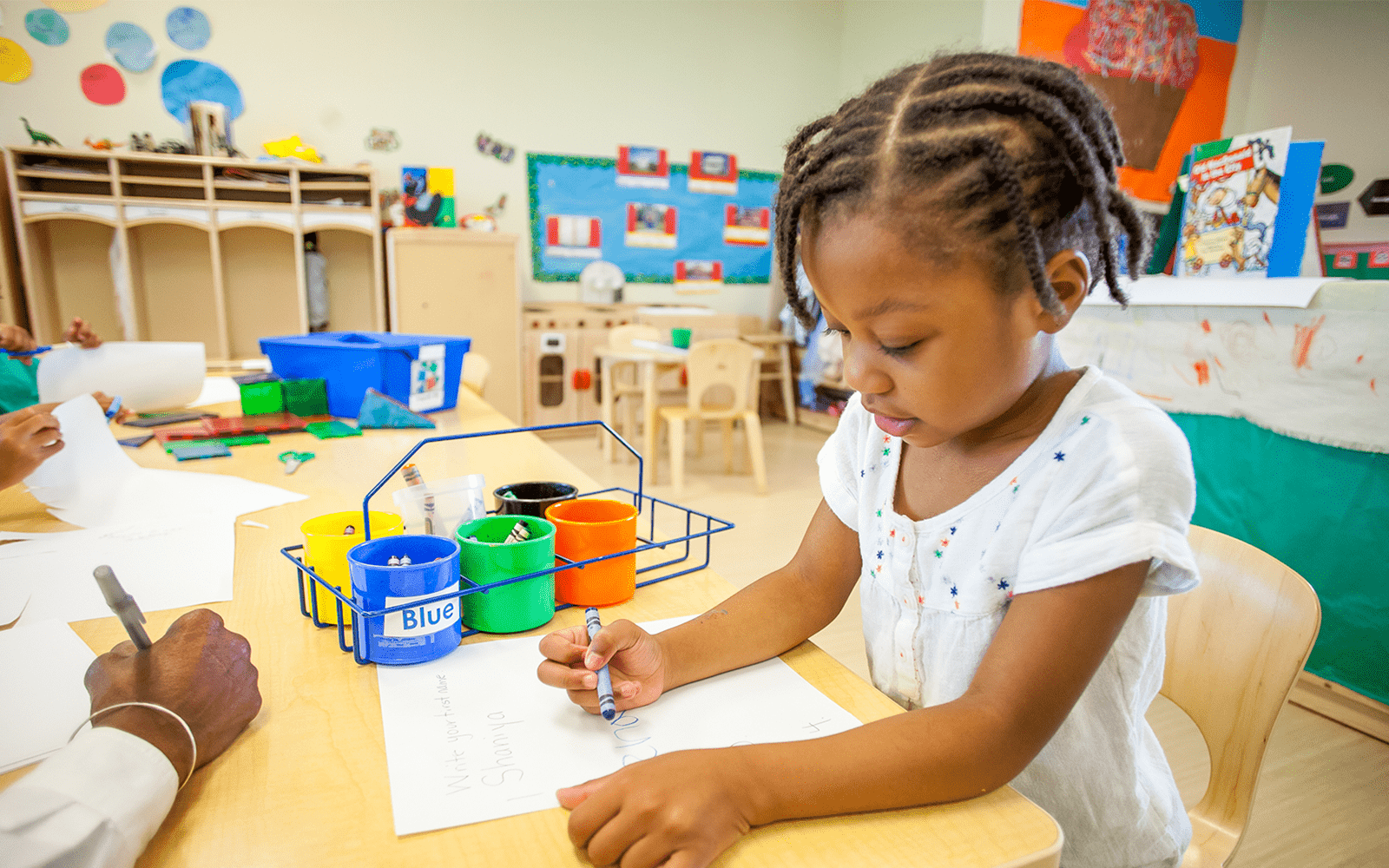You and your child may feel excited—or apprehensive—about the first day of preschool. This is a big transition for children, especially those going to school for the first time. Children will learn many social and emotional and academic skills in preschool that will help them throughout their school careers, so it’s important to help children feel comfortable in the classroom.

Ready for Preschool: Tips to Prepare Your 3- or 4-Year-Old Child
Preschool is a big transition for you and your child. Our early learning expert shares their school readiness tips to help your little one navigate this exciting time.
Stay Connected
Sign up to receive news, helpful tools and learn about how you can help our youngest learners.
Checklist To Navigate the Transition to Preschool
To help your child get the most out of the preschool experience, we asked a Start Early expert for some advice for parents handling this transition. Annaliese Newmeyer a teacher at Educare Chicago, a program of Start Early, shared her tips to help you and your child prepare for preschool.
Before the first day:
- Drive or walk by your child’s new school. Seeing their school ahead of time will help familiarize them with their new space. You can show them where things are like the main door and the playlot. This will help your child feel more comfortable with the space and how things will look on their first day.
- Meet with the teacher. Meeting your child’s teacher ahead of their first day is very helpful for both you and your little learner. At this meeting, you can help your child learn their new teacher’s name and give your child a chance to become comfortable with them. You can also take this time to ask the teacher what your child will be learning and what skills they expect children to have on day one. Then, you can set some realistic and developmentally-appropriate goals for your child. For example, do you work on your child’s reading? Together you can set goals that can help your child develop early literacy skills, like being able to recognize their name and the letters in their name.
- Celebrate this milestone. This can be the beginning of a tradition to say goodbye to Summer and hello to the school year! Maybe you and your child go get an ice cream sundae or go to a baseball game or stay up late and watch movies and eat snacks together.
On the first day:
- Be prepared. Bring a bookbag with a change of clothes, a favorite blanket or stuffed animal for nap time, and even a picture of your family. Having something that reminds your child of home with help them feel more at ease in their new environment.
- Make sure your child eats a good breakfast and gets some rest. Your child’s school might give them breakfast, but it might be later, and you don’t want them to be too hungry!
- Expect the first day to be easy but it might get hard the second day or the second week when reality sets in that they must return to school every single weekday.
- Explain to your child that this will be a hard transition for you too! You will miss them, and they will have to meet new people and have new experiences but each day will get easier.
- Make sure you say goodbye, do not sneak away. Have the same goodbye every day; we call this a goodbye ritual. It can be a hug, a special handshake or a dance! This ritual will help your child learn what to expect when you come to class and will help ease their anxiety when you leave.
Ongoing:
- Ask questions! Ask your child’s teacher how each day is going and what you can do to help make it better. And be sure to ask your child how their day was. At first, they might just say nothing, but as you ask them every day, their answers will become more and more descriptive.
- Volunteer in the classroom if you can. Get to know the other kids and parents. This is your new community, your new village and you are there to support each other!
- Be Open: Covid has affected children in many different ways. We are seeing more children who are qualifying for services, such as speech therapy, due to having to wear masks or seeing adults wear mask, when they were first learning to talk. These type of Early Invention services are so important for children to receive; they are free and the earlier they get them, the less likely they will need them later in life!
About the Author

Annaliese Newmeyer
Head Start Lead Teacher and Mentor Coach, Educare Chicago
Annaliese has been an early childhood teacher for 16 years. She enjoys teaching children how to problem solve and learning side-by-side with her students.
More Like This
Take Action
Raise your voice and encourage lawmakers to prioritize early learning and care at the local, state and federal level.
Support Our Work
Together, when we start early, we can close the opportunity gap and ensure every child has a chance to reach their full potential.
Resources for Families
Discover educational activities and resources from Start Early experts to provide easy and engaging educational experiences with your child.

